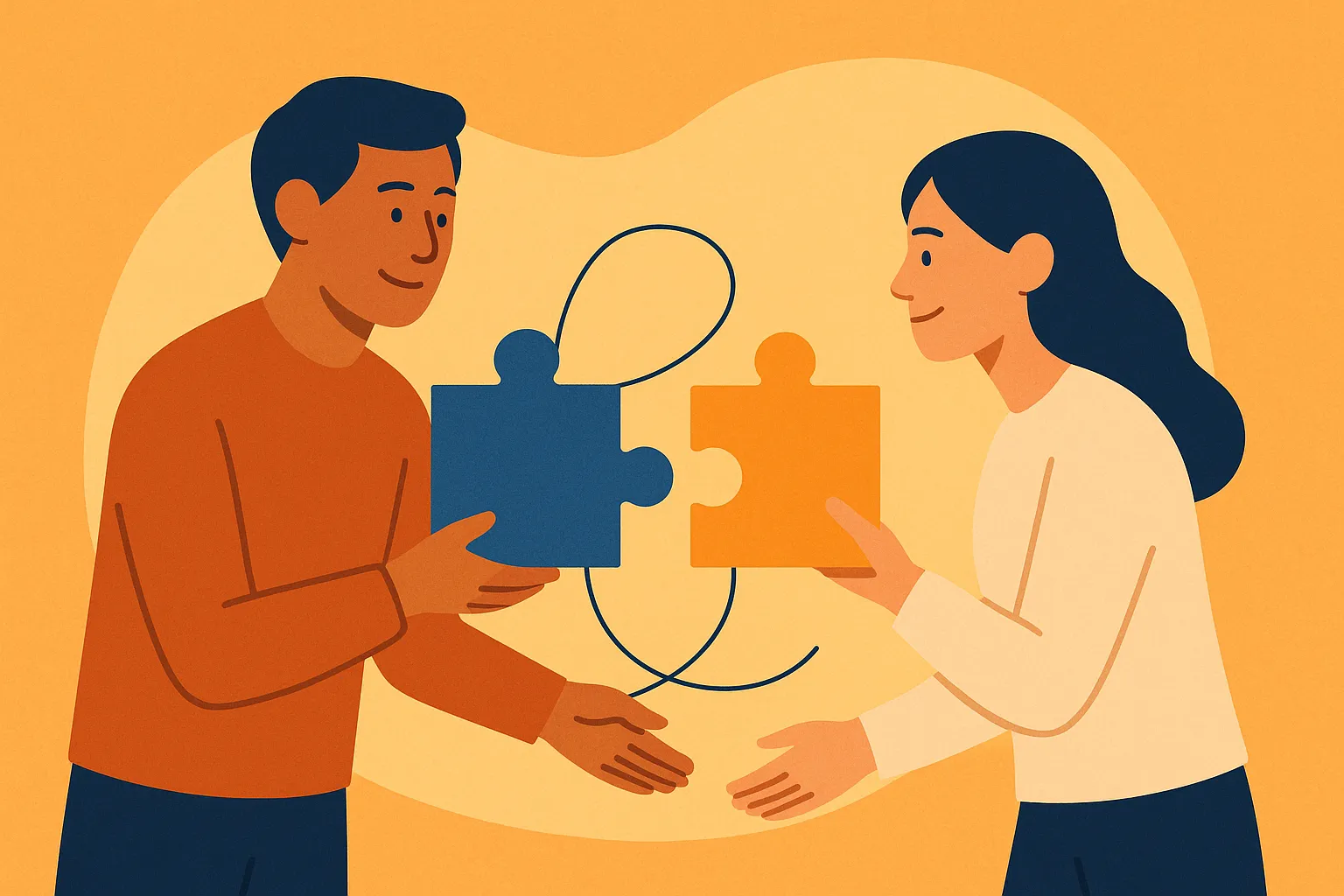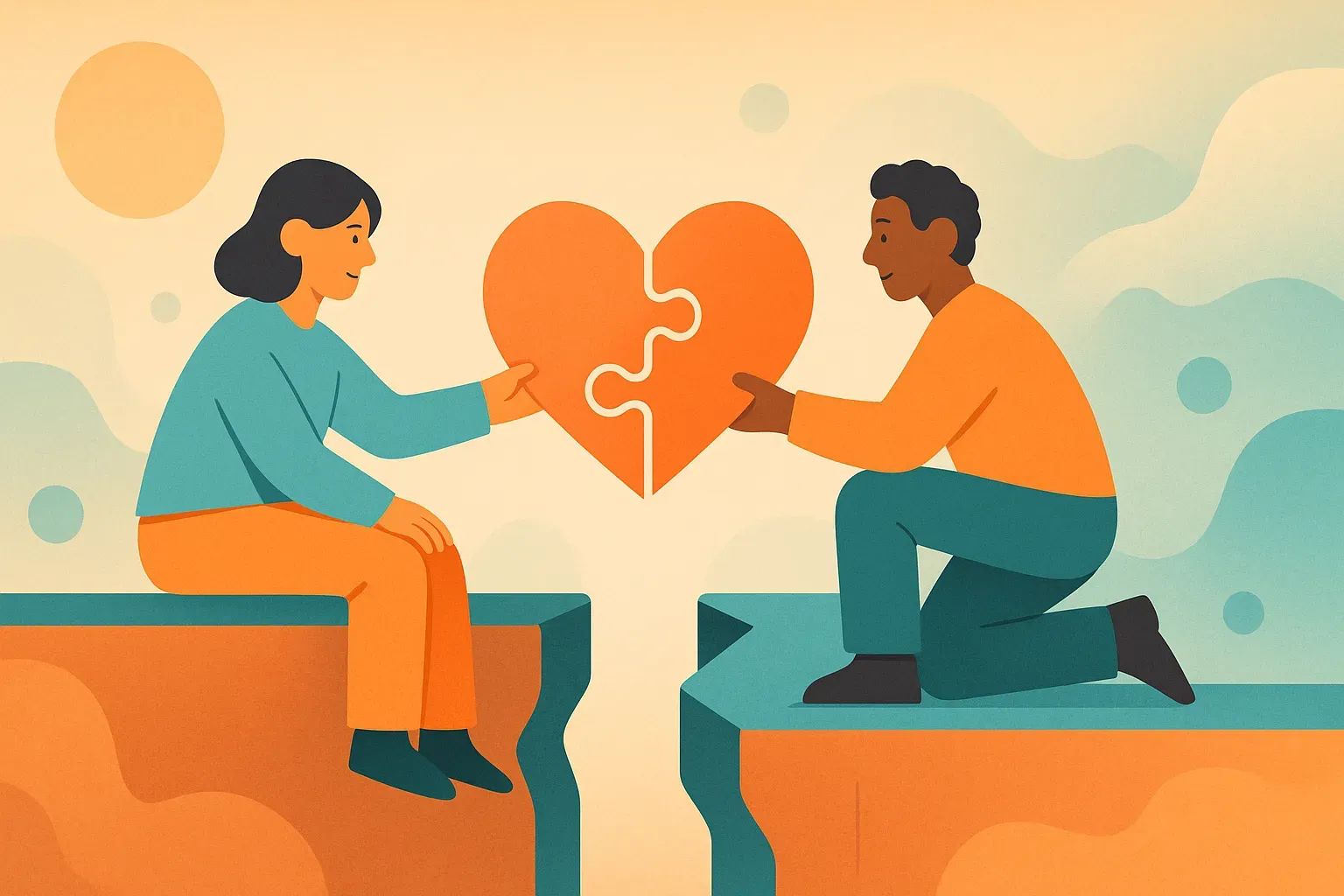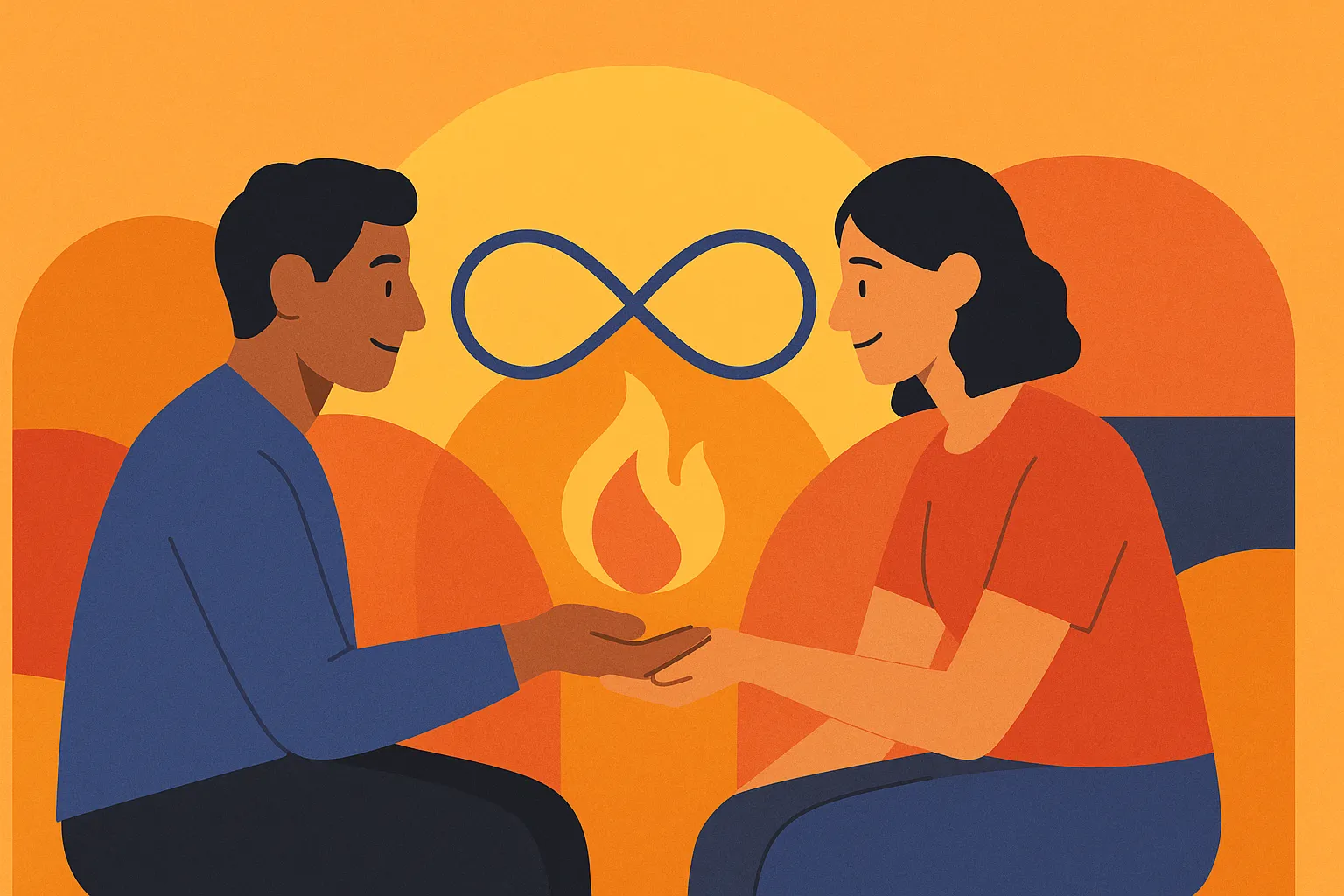
I still remember sitting in my car after picking up my stuff from my ex's apartment, feeling like someone had literally hollowed out my chest. The silence was deafening, and I kept reaching for my phone to text them—before remembering we weren't doing that anymore.
Sound familiar?
Here's what I wish someone had told me during those brutal first weeks: Healing from a breakup isn't just about "getting over someone." It's about rebuilding your entire sense of self after it got tangled up with another person for months or years.
The advice you'll find everywhere—"just focus on yourself," "hit the gym," "time heals everything"—isn't wrong, but it's incomplete. It treats breakup recovery like a simple equation when it's actually more like learning to walk again after an injury.
The real question isn't how long it takes to feel better (though we all desperately want that timeline). It's how to heal in a way that actually makes you stronger, not just numb to the pain.
Because there's a massive difference between moving on and truly healing—and most people never learn how to do the latter.
The Real Problem Is Actually...
Most breakup advice treats emotional pain like a temporary inconvenience rather than what it actually is: your brain and heart processing the loss of a significant attachment.
When you're in a relationship, your nervous system literally adapts to having that person around. Your brain creates neural pathways that expect their presence, their voice, their responses to your daily experiences. That's why you still reach for your phone to text them about random stuff weeks after the breakup.
You're not "weak" or "too attached"—you're experiencing the natural withdrawal that happens when a major source of comfort, validation, and connection suddenly disappears.
Here's the kicker: most people try to skip this withdrawal process entirely.
They jump into rebounds, bury themselves in work, or force themselves to "be positive" before they've actually processed what happened. It's like trying to heal a broken bone without ever setting it properly—you might stop feeling acute pain, but you'll end up with lasting damage.
Research shows that breakups activate the same brain regions as physical pain and addiction withdrawal. Your brain is literally craving someone who's no longer available, while simultaneously trying to make sense of why the future you planned together no longer exists.
But There is Still Chance…
You're not broken, and you're not behind schedule on some imaginary healing timeline. Every confusing emotion you're experiencing—even the contradictory ones—is your psyche doing exactly what it needs to do.
The approach that actually works isn't about rushing through the pain or pretending it doesn't exist. It's about creating a structured healing process that honors what you've lost while actively rebuilding who you are as an individual.
I discovered this after my third major breakup, when I finally stopped trying to "bounce back" and started treating healing like the intentional process it needs to be.
The 4-Phase Complete Recovery Method
Phase 1: Stop Fighting Your Feelings
The first phase isn't about getting better – it's about getting real with where you are right now.
Why this matters: Your brain needs to process the loss before it can move forward. Trying to skip grief is like trying to build a house on quicksand.
What most people get wrong: They think crying every day means they're "not healing" or being "too dramatic." Actually, tears are how your nervous system releases stress hormones. Fighting them just prolongs the process.
🎯 Your actual job right now:
- Allow yourself to feel terrible for a predetermined amount of time each day (I used 30 minutes of "grief time")
- Create basic structure: shower, eat real food, talk to one person daily
- Write down three things you lost and three things you gained from the relationship
- Stop consuming content about "getting them back" – it's emotional junk food right now, especially if you've already decided this relationship isn't worth fighting for
🤔 Still finding yourself unable to resist the urge to text or thinking about your ex? Can’t stop feeling hurt and don’t know how to start the process of healing? Click here to get an AI advisor to help you out!
Phase 2: Processing the Relationship Reality
Why this phase matters: You can't heal from something you haven't fully acknowledged. This means grieving not just the person, but the future you planned together.
📝 These are how you can understand better:
- Writing the full story: Not just the good or bad parts, but the complete, honest narrative of what happened
- Identifying your attachment patterns: What needs were you trying to meet through this relationship?
- Recognizing what you actually miss: Often it's the routine, security, or validation more than the specific person
The breakthrough insight: Most people try to focus only on their ex's negative qualities to speed up healing. This backfires because you're not processing the real loss—you're just building resentment.
Where this usually goes wrong is when people skip the grief work and jump straight to anger or forced positivity. Successful healing requires feeling the sadness fully before you can genuinely move past it.
🤔 Struggling to identify your attachment patterns or understand what emotional needs you were trying to meet? Finding it hard to see beyond the surface of what went wrong? Click here to get personalized AI guidance on understanding your relationship patterns!
Phase 3: Reclaiming Your Individual Identity
Why this is crucial: In relationships, we often lose track of who we are as individuals. Healing means rediscovering that person—and often finding they're more interesting than you remembered.
🔑 Key things to find yourself:
- Make a list of things you used to love before the relationship
- Try three new activities you were always curious about but never pursued
- connect with friends you may have neglected during the relationship
- Notice what you actually like versus what you liked because they liked it
❗️Avoid this trap: trying to become a "completely new person." The goal isn't to erase who you were in the relationship, but to integrate those experiences into a fuller version of yourself.
🤔 Doing the work to rediscover yourself but need someone to confirm you're on the right track? Click here to get validation that your progress is real.
Phase 4: Building Your New Normal
Why this matters most: Healing isn't complete until you've created a life that feels genuinely satisfying without your ex in it. Not just tolerable—actually fulfilling.
🔍 This phase focuses on:
- Create a support system that isn't just "breakup recovery" focused
- Start considering what you want in future relationships based on what you learned
- Practice dating yourself – take yourself on adventures you actually want to go on
- Establish new traditions and routines that bring you joy
Successful people always focus on this phase longer than they think they need to. The temptation is to rush into dating again as soon as you feel "better," but true healing means being genuinely content alone first.
I Know What You're Thinking...
"But what if I never find anyone else like them?"
This fear is so normal it's practically universal. Here's the truth: you probably won't find anyone exactly like them—and that's actually good news. You'll find someone who's right for who you're becoming, not who you were.
"What if they move on faster than me?"
Their healing timeline has absolutely nothing to do with yours. Some people jump into new relationships immediately because they can't tolerate being alone—that's not healing, it's avoidance. Your slower, more intentional process is likely to serve you better long-term.
"How do I know if I'm actually healing or just getting numb?"
Real healing includes gradually increasing capacity for joy, curiosity about your future, and genuine care for your ex's wellbeing (even if you don't want them back). Numbness feels flat and disconnected from everything, including positive experiences.
How to Move Forward
Healing from a breakup isn't about reaching some finish line where you never think about them again. It's about building a life so genuinely fulfilling that when you do think about them, it doesn't knock you off course.
The process takes time – usually 3-6 months minimum for most people to feel substantially better, and that's with active healing work. Be patient with yourself, but also be intentional about your recovery.
Remember: healing well is the best revenge, but more importantly, it's the best gift you can give your future self.


